电动剃须刀盒体注射模具设计(含CAD零件装配图,UG三维零件图)
无需注册登录,支付后按照提示操作即可获取该资料.
电动剃须刀盒体注射模具设计(含CAD零件装配图,UG三维零件图)(任务书,开题报告,外文翻译,论文说明书17000字,CAD图纸14张,UG三维零件图)
毕业设计说明书(论文)中文摘要
本文主要介绍了剃须刀盒体的注射模具设计,该盒体是普通剃须刀盒体的一部分,其材料为PP塑料,根据PP塑料成型的工艺特性和产品的使用要求,对产品进行详细的工艺分析。通过对测绘的产品尺寸和工艺分析,选择了合适的分型面,对模具进行了成型零件、浇注系统、侧向抽芯机构及推出机构和复位机构进行设计,最后完成这副模具总装图的设计及主要零件图的绘制,并确保模具结构的可靠性、合理性、实用性。
在模具设计过程中,采用了UG、Pro/ENGINEER、AutoCAD等著名的设计分析软件,采用这些软件进行设计分析,优化了设计的参数和缩短了设计时间,提高了设计效率。
关键词 模具设计 PP塑料 剃须刀盒体 注射模具
毕业设计说明书(论文)外文摘要
Title Design of Injection Mould for the electric
razor box
Abstract
This paper presents a razor box of the injection mold design, the box is ordinary razor box as part of its PP plastic materials, according to the PP plastic molding technology and product features require the use of the product in detail Analysis of the process. By mapping the size and process analysis products, select the right type face, the mold was forming parts, pouring system, lateral institutions and the introduction of core pulling bodies and reset institutions designed to complete the final die of hand Design plans and major parts of the drawing, and to ensure the reliability of die structure, reasonable, practical.
In the mold design process, the use of the UG, Pro / ENGINEER, AutoCAD, and other well-known design analysis software, the software used to design analysis, optimization of the design parameters and shortened the design time and increase the efficiency of the design.
Key word mold design PP plastics razor box
injection mold
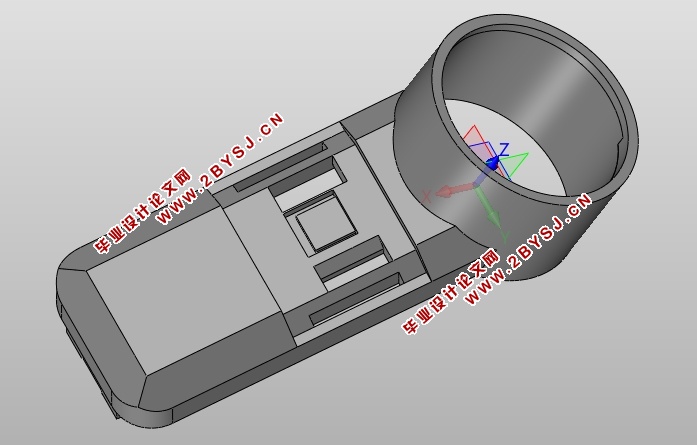
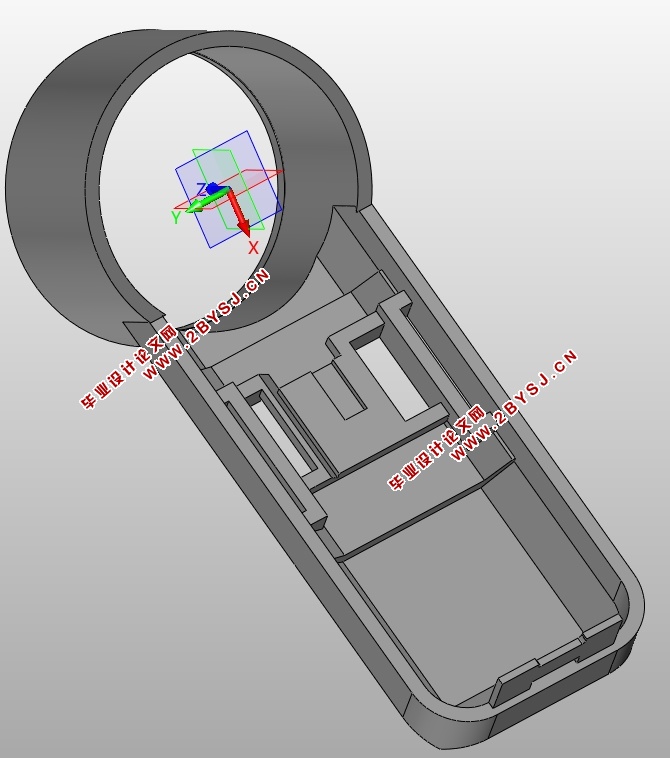
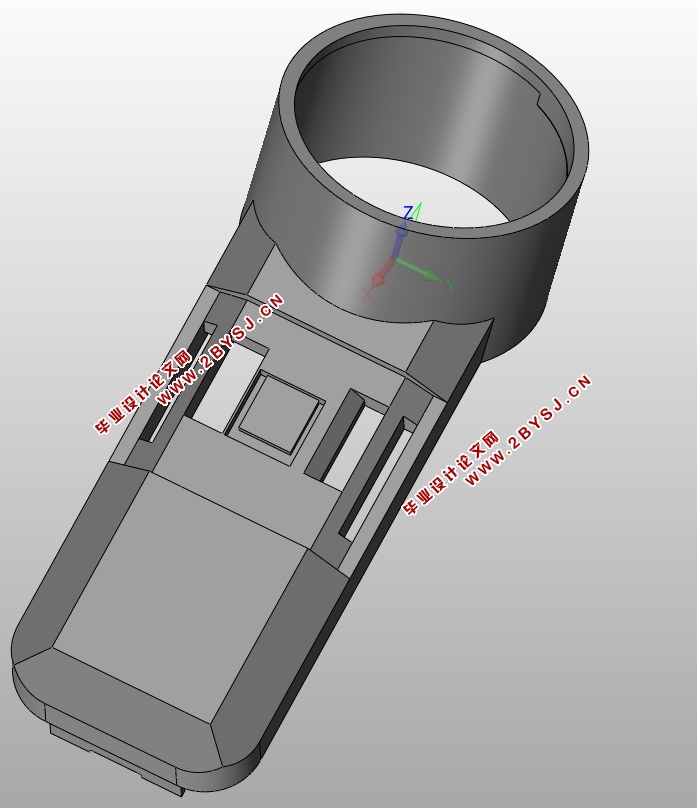
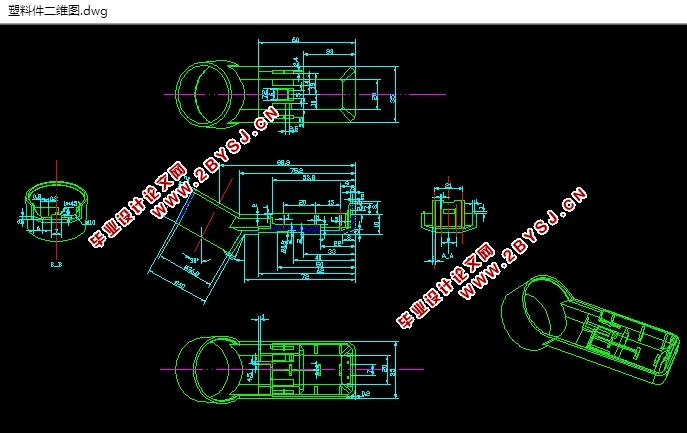
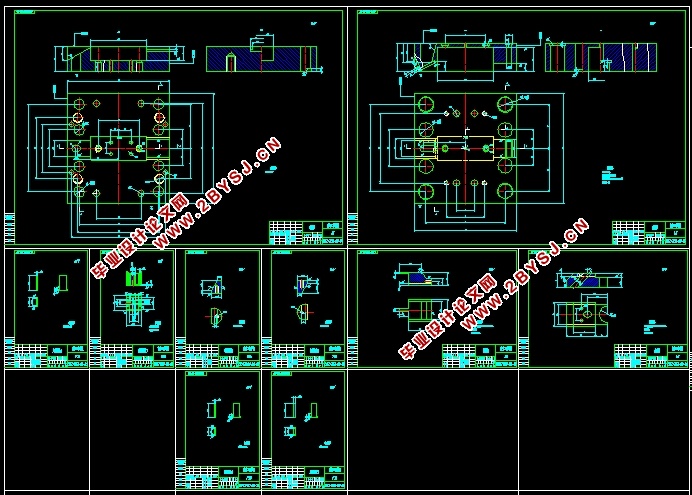
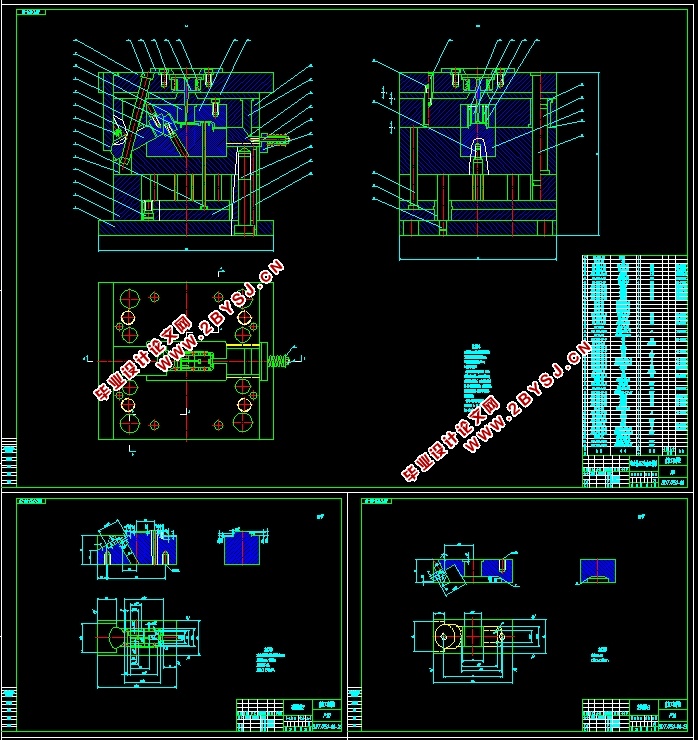
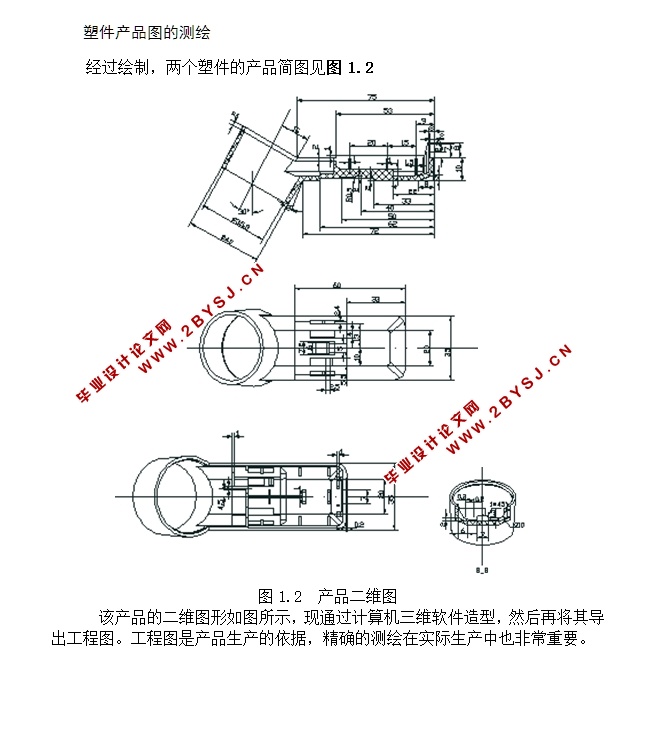

目 录
前言 1
一、模具行业及产品发展现状 1
二、选题意义 3
第一章 塑料产品介绍及其工艺特点 4
1.1 产品结构工艺性分析 4
1.1.1 塑料的分析 4
1.1.2塑件的工艺分析 5
1.2塑件产品图的测绘 6
第二章 注射成型方案分析 8
2.1 分型面及其选择 8
2.2 侧向分型分析 8
3.1 模架的选择 10
3.2塑件的成型设备选用 10
3.2.1分型面投影面积的计算 11
3.2.3 注塑机的选择 12
3.2.4 注塑机的校核 13
3.3 成型零部件设计 15
3.3.1 成型零部件的结构设计 15
3.3.2 成型零部件的工作尺寸计算 16
3.4 浇注系统的设计 21
3.4.1 主流道的设计 22
3.5 侧向分型与抽芯机构的设计 24
3.5.1斜导柱的设计 25
3.5.2抽芯距的确定 25
3.5.3圆形斜导柱直径的确定: 25
3.5.4 斜导柱长度的计算 26
3.5.5侧滑块的设计 27
3.5.6楔紧块的设计 28
3.6 推出机构的设计 28
3.6.1 推出力的计算 29
3.6.2 推出机构的选择 29
3.7 复位机构的设计 30
3.8 冷却系统的设计 30
第四章 模具的工作原理和模具结构特点 31
4.1 模具工作原理 31
第五章 结 论 32
致 谢 33
参考文献 34
